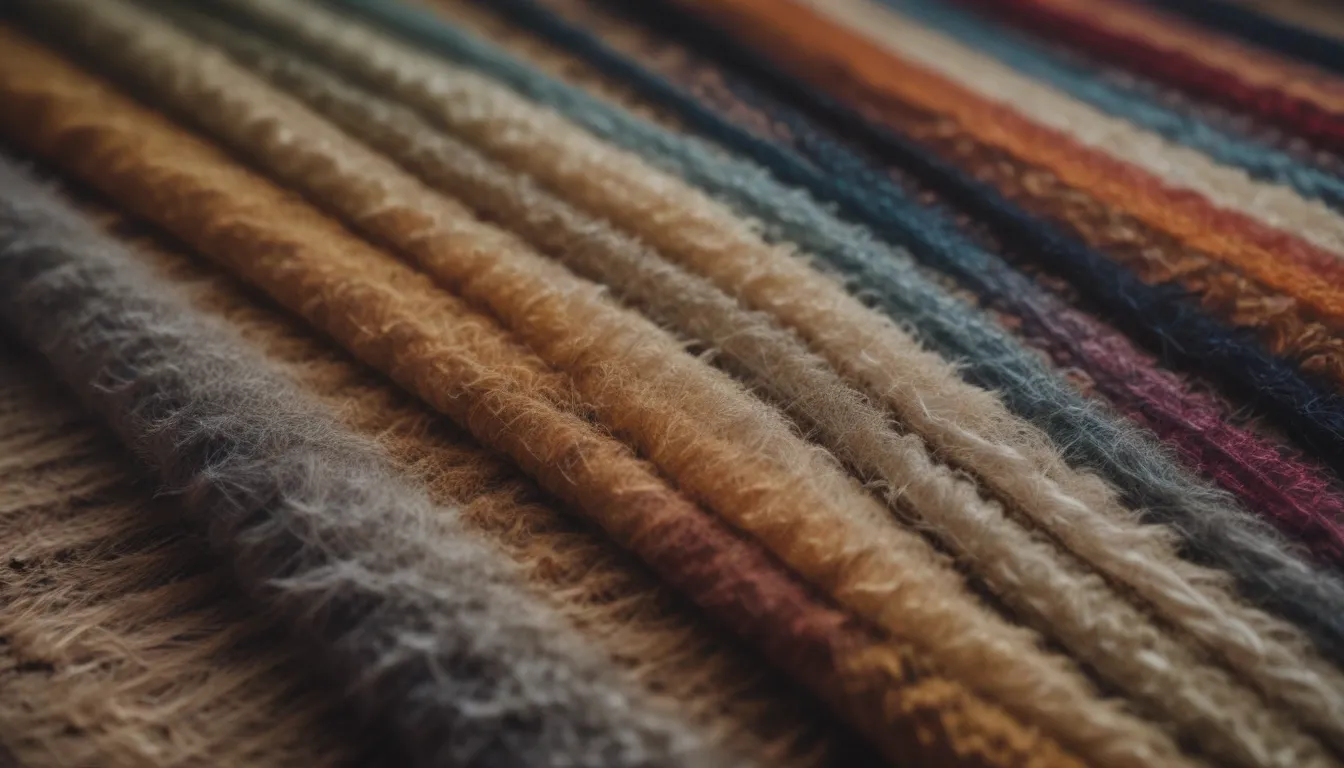Choosing Between Nylon and Polyester Carpet Fibers: What You Need to Know

Are you in the market for a new carpet but feeling overwhelmed by the choices available? Nylon and polyester are two of the most popular materials in the synthetic carpet fiber market, each with its own unique set of characteristics and benefits. Determining which one is best for you depends on your specific needs, environment, and budget. Let’s dive into the key differences between nylon and polyester carpets to help you make an informed decision.
Durability: Nylon vs. Polyester
Durability is a top consideration when it comes to carpet purchases, as most consumers want a carpet that can withstand daily wear and tear and still look good for years to come. Here’s how nylon and polyester stack up in terms of durability:
- Nylon: Nylon is well-known for its durability and resilience. It has long been considered the most durable synthetic carpet fiber available. The secret to nylon’s durability lies in its ability to “bounce back” from compaction, making it ideal for high-traffic areas.
- Polyester: On the other hand, polyester is generally considered less durable than nylon. It lacks nylon’s high resilience and may show signs of wear due to foot traffic sooner than nylon.
It’s important to note that both nylon and polyester carpets come in a range of qualities, so a high-grade polyester carpet may outperform a low-grade nylon carpet. When comparing different carpets, ensure they are of equivalent quality to make a fair assessment.
Stain Resistance: Nylon vs. Polyester
When it comes to stain resistance, polyester has a slight edge over nylon. Here’s why:
- Polyester: Polyester is a hydrophobic fiber, meaning it repels liquid and is less likely to absorb spills, making it more stain-resistant.
- Nylon: Nylon, on the other hand, is more absorbent and prone to spills. However, some nylon carpets are treated to enhance their stain resistance. Solution-dyed nylon, where the color goes through the fiber, can significantly improve stain resistance.
Both polyester and nylon carpets offer some level of stain protection, but polyester may have a slight advantage in this area.
Eco-Friendliness: Sustainability in Carpet Fibers
If eco-friendliness is a priority for you, both nylon and polyester carpets have options that align with sustainable practices:
- Polyester: PET polyester, commonly made from recycled materials like plastic drink bottles, is known for its environmental benefits. Brands like Shaw’s ClearTouch and Mohawk’s Continuum offer collections made from recycled fibers.
- Nylon: While nylon traditionally had a less eco-friendly reputation, advancements in manufacturing now allow for recyclable nylon carpets. Some nylon carpets are made from recycled content, creating a cradle-to-cradle cycle with environmental benefits.
When choosing an environmentally friendly carpet, look for labels and certifications that indicate sustainable practices in manufacturing and materials.
Softness: Comfort Underfoot
Softness is a key factor in determining the comfort of your carpet. Both nylon and polyester carpets offer a variety of styles with soft fibers, ensuring a plush feel underfoot. Thanks to advancements in production techniques, today’s carpets are softer than ever before, regardless of the fiber type.
Cost: Nylon vs. Polyester
Cost is often a deciding factor when choosing between nylon and polyester carpets:
- Nylon: Nylon is typically the more expensive synthetic fiber to produce, resulting in higher-priced carpets compared to polyester.
- Polyester: Polyester carpets are generally more budget-friendly than nylon options, making them an attractive choice for cost-conscious consumers.
While nylon may be a pricier option, there are high-quality polyester carpets available that can rival the performance of nylon at a lower cost.
Which Fiber is Right for You?
In the nylon vs. polyester carpet debate, there is no clear winner. Each fiber type has its own advantages and drawbacks, so it ultimately comes down to your specific needs and preferences:
- Nylon: If durability and longevity are your top priorities, nylon is likely the best option for high-traffic areas that require a carpet to withstand wear and tear over time.
- Polyester: For budget-conscious consumers looking for a cost-effective carpet option, polyester may be the more suitable choice while still offering softness and stain resistance.
By weighing the benefits and drawbacks of each fiber type and considering your unique requirements, you can make an informed decision on which carpet fiber is the best fit for your home.
In conclusion, when comparing nylon and polyester carpet fibers, consider factors such as durability, stain resistance, eco-friendliness, softness, and cost to determine the best option for your specific needs. Whether you choose nylon or polyester, rest assured that both fiber types offer a range of qualities to meet your preferences. Happy carpet shopping!





